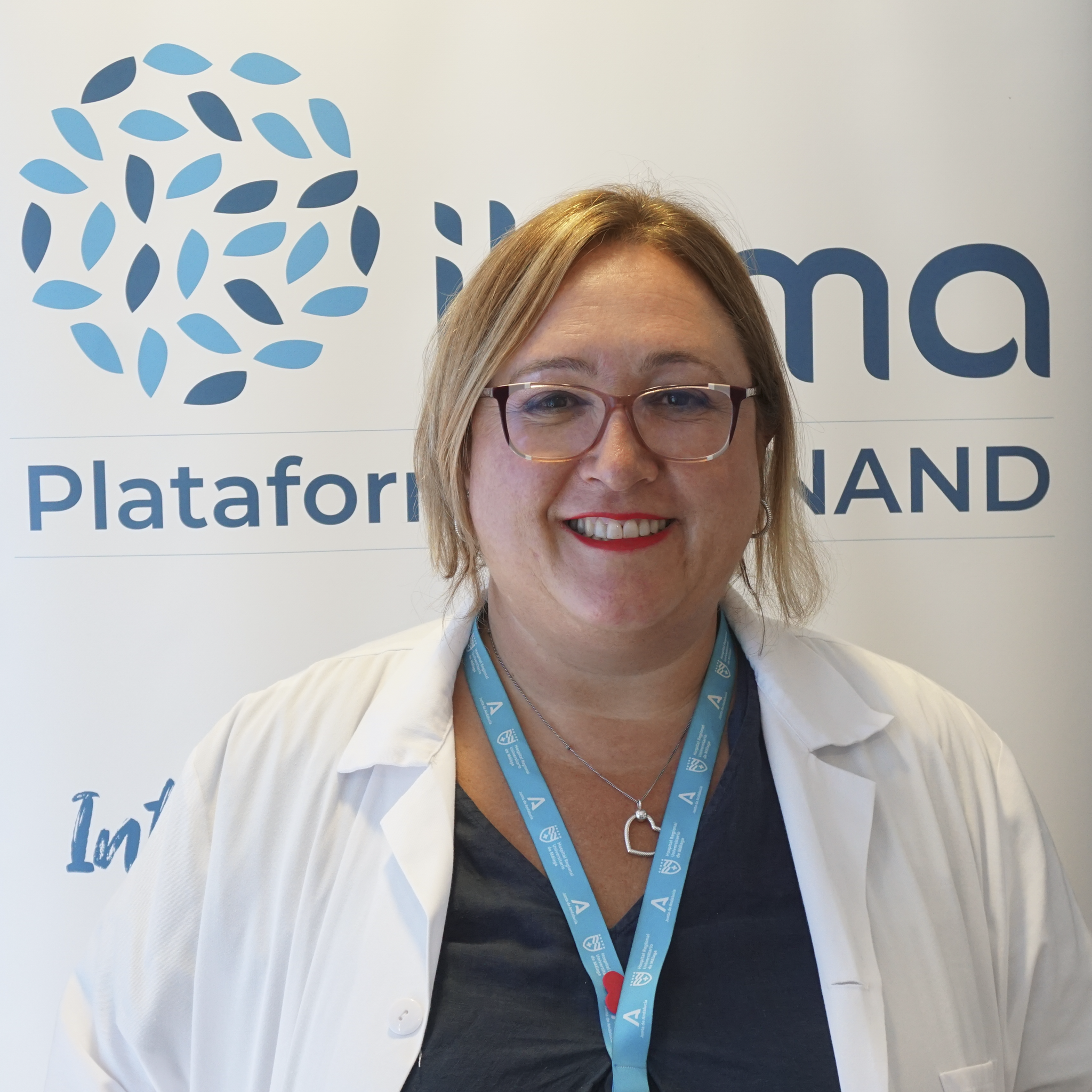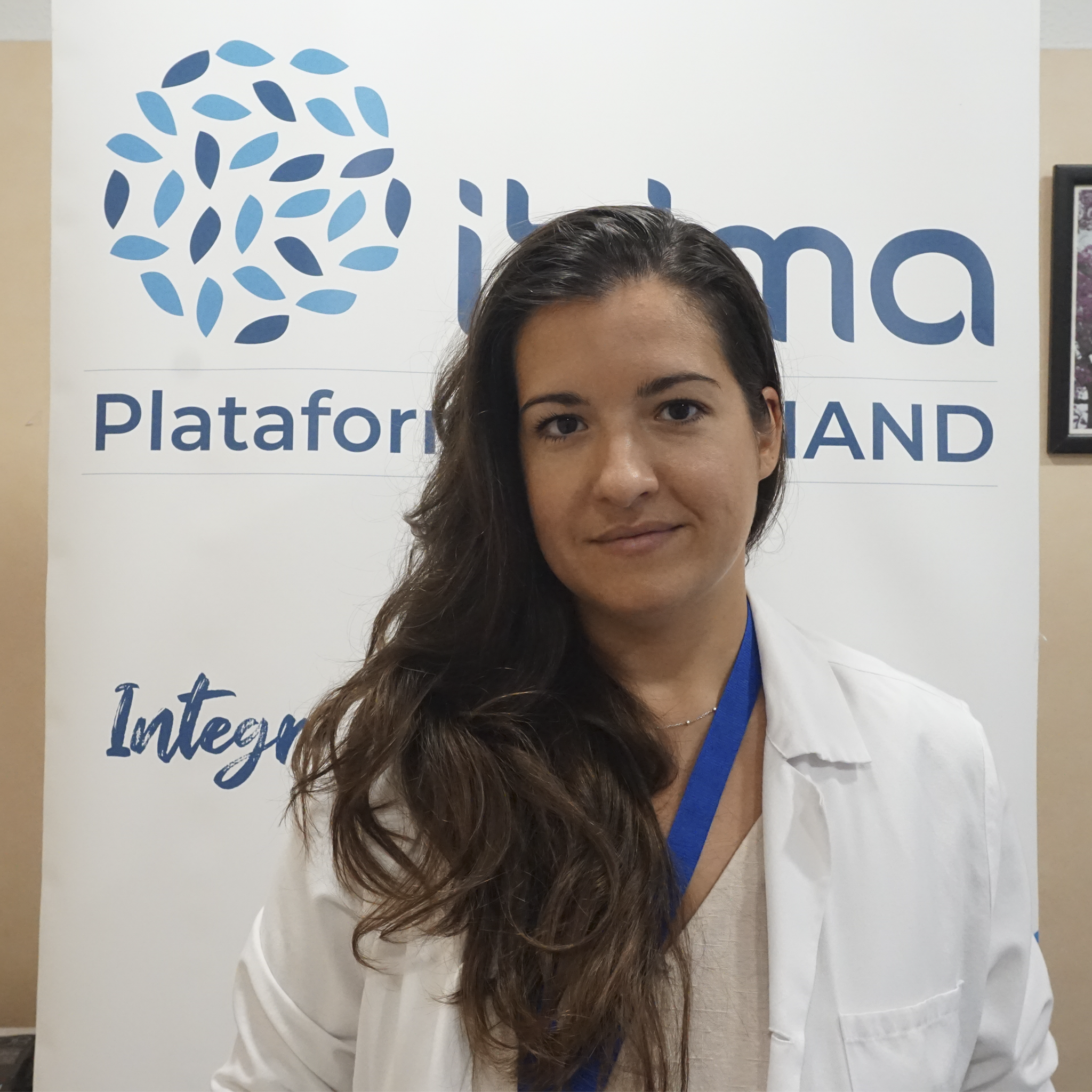Nephrology and Renal Transplantation
Lines of Research
- Research projects
- Clinical studies
- Scientific Publications
- Technological Offers
- Industrial property records
No results
The page you requested could not be found. Try refining your search, or use the navigation above to locate the post.
No results
The page you requested could not be found. Try refining your search, or use the navigation above to locate the post.
Pretransplant CMV-Specific T-Cell Immunity But Not Dose of Antithymocyte Globulin Is Associated With Recovery of Specific Immunity After Kidney Transplantation
COVID-19 in Spain: Transplantation in the midst of the pandemic
Dominguez-Gil, B; Coll, E; Fernandez-Ruiz, M; Corral, E; del Rio, F; Zaragoza, R; Rubio, JJ; Hernandez, D – 2020
Derivation and external validation of the SIMPLICITY score as a simple immune-based risk score to predict infection in kidney transplant recipients
Fernandez-Ruiz, M; Seron, D; Alonso, A; Lora, D; Hernandez, D; Gonzalez, E; Perez-Saez, MJ; Gomez, G; Pallardo-Mateu, LM; Jimeno-Garcia, L; Cofan, F; Gutierrez-Dalmau, A; Ruiz, JC; Ramirez-Puga, A; Estupinan, RS; Marcen, R; Portoles, JM; Munoz-Cepeda, MA; Lopez-Medrano, F; San Juan, R; Andres, A; Aguado, JM – 2020
Monitoring of Donor-specific Anti-HLA Antibodies and Management of Immunosuppression in Kidney Transplant Recipients: An Evidence-based Expert Paper
Crespo, M; Zarraga, S; Alonso, A; Beneyto, I; Corte, CD; Rodriguez, AMF; Franco, A; Hernandez, D; Gonzalez-Roncero, FM; Martin, CJ; Jimeno, L; Valdemoros, LRL; Llorente, S; Mazuecos, A; Osuna, A; Ramos, JP; Benot, AR; San Millan, JCR; Fructuoso, AS; Torregrosa, JV; Guirado, L – 2020
Mycophenolate Mofetil in C3 Glomerulopathy and Pathogenic Drivers of the Disease
Caravaca-Fontan, F; Diaz-Encarnacion, MM; Lucientes, L; Cavero, T; Cabello, V; Ariceta, G; Quintana, LF; Marco, H; Barros, X; Ramos, N; Rodriguez-Mendiola, N; Cruz, S; Fernandez-Juarez, G; Rodriguez, A; de Jose, AP; Rabasco, C; Rodado, R; Fernandez, L; Gomez, VP; Avila, AI; Bravo, L; Lumbreras, J; Allende, N; de la Nieta, MDS; Rodriguez, E; Olea, T; Melgosa, M; Huerta, A; Miquel, R; Mon, C; Fraga, G; de Lorenzo, A; Draibe, J; Cano-Megias, M; Gonzalez, F; Shabaka, A; Lopez-Rubio, ME; Fenollosa, MA; Martin-Penagos, L; Da Silva, I; Titos, JA; de Cordoba, SR; de Jorge, EG; Praga, M – 2020
Oral fosfomycin for the treatment of lower urinary tract infections among kidney transplant recipients-Results of a Spanish multicenter cohort
Lopez-Medrano, F; Silva, JT; Fernandez-Ruiz, M; Vidal, E; Origuen, J; Calvo-Cano, A; Luna-Huerta, E; Merino, E; Hernandez, D; Jironda-Gallegos, C; Escudero, R; Gioia, F; Moreno, A; Roca, C; Cordero, E; Janeiro, D; Sanchez-Sobrino, B; Montero, MM; Redondo, D; Candel, FJ; Perez-Flores, I; Arminanzas, C; Gonzalez-Rico, C; Farinas, MC; Rodrigo, E; Loeches, B; Lopez-Oliva, MO; Montejo, M; Lauzurica, R; Horcajada, JP; Pascual, J; Andres, A; Aguado, JM – 2020
Recommendations on management of the SARS-CoV-2 coronavirus pandemic (Covid-19) in kidney transplant patients
Lopez, V; Vazquez, T; Alonso-Titos, J; Cabello, M; Alonso, A; Beneyto, I; Crespo, M; Diaz-Corte, C; Franco, A; Gonzalez-Roncero, F; Gutierrez, E; Guirado, L; Jimenez, C; Jironda, C; Lauzurica, R; Llorente, S; Mazuecos, A; Paul, J; Rodriguez-Benot, A; Ruiz, JC; Sanchez-Fructuoso, A; Sola, E; Torregrosa, V; Zarraga, S; Hernandez, D – 2020
Respiratory and Gastrointestinal COVID-19 Phenotypes in Kidney Transplant Recipients
Crespo, M; Mazuecos, A; Rodrigo, E; Gavela, E; Villanego, F; Sanchez-Alvarez, E; Gonzalez-Monte, E; Jimenez-Martin, C; Melilli, E; Diekman, F; Zarraga, S; Hernandez, D; Pascual, J – 2020
Use of tocilizumab in kidney transplant recipients with COVID-19
Perez-Saez, MJ; Blasco, M; Redondo-Pachon, D; Ventura-Aguiar, P; Bada-Bosch, T; Perez-Flores, I; Melilli, E; Sanchez-Camara, LA; Lopez-Oliva, MO; Canal, C; Shabaka, A; Garra-Moncau, N; Martin-Moreno, PL; Lopez, V; Hernandez-Gallego, R; Siverio, O; Galeano, C; Espi-Reig, J; Cabezas, CJ; Rodrigo, MT; Llinas-Mallol, L; Fernandez-Reyes, MJ; Cruzado-Vega, L; Perez-Tamajon, L; Santana-Estupinan, R; Ruiz-Fuentes, MC; Tabernero, G; Zarraga, S; Ruiz, JC; Gutierrez-Dalmau, A; Mazuecos, A; Sanchez-Alvarez, E; Crespo, M; Pascual, J – 2020
Waiting List and Kidney Transplant Vascular Risk: An Ongoing Unmet Concern
Hernandez, D; Alonso-Titos, J; Armas-Padron, AM; Lopez, V; Cabello, M; Sola, E; Fuentes, L; Gutierrez, E; Vazquez, T; Jimenez, T; Ruiz-Esteban, P; Gonzalez-Molina, M – 2020
Early outcomes of kidney transplantation from elderly donors after circulatory death (GEODAS study)
Perez-Saez, MJ; Covarrubias, OL; Hernandez, D; Moreso, F; Melilli, E; Juega, J; de Sousa, E; Lopez-Sanchez, P; Rodriguez-Ferrero, ML; Maruri-Kareaga, N; Navarro, MD; Valero, R; Mazuecos, MA; Llamas, F; Martin-Moreno, P; Fernandez-Garcia, A; Espi, J; Jimenez, C; Ramos, A; Gavela, E; Pascual, J; Portoles, JM; Sanchez-Sobrino, B; de Hierro, P; Zapatero, A; Manonelles, A; Juega, J; Lauzurica, R; Diekmann, F; Zarraga, S; Rodriguez-Benot, A; Ruiz, JC; Alonso, A; Lopez-Oliva, M; Sancho-Calabuig, A – 2019
IgA Nephropathy in Elderly Patients
Sevillano, AM; Diaz, M; Caravaca-Fontan, F; Barrios, C; Bernis, C; Cabrera, J; Calvino, J; Castillo, L; Cobelo, C; Delgado-Mallen, P; Espinosa, M; Fernandez-Juarez, G; Fernandez-Reyes, MJ; Garcia-Osuna, R; Garcia, P; Goicoechea, M; Gonzalez-Cabrera, F; Guzman, DA; Heras, M; Martin-Reyes, G; Martinez, A; Olea, T; Pena, JK; Quintana, LF; Rabasco, C; Lopez Revuelta, K; Rodas, L; Rodriguez-Mendiola, N; Rodriguez, E; San Miguel, L; Sanchez de la Nieta, MD; Shabaka, A; Sierra, M; Valera, A; Velo, M; Verde, E; Ballarin, J; Noboa, O; Moreno, JA; Gutierrez, E; Praga, M – 2019
Kidney transplant from controlled donors following circulatory death: Results from the GEODAS-3 multicentre study
Portoles, JM; Perez-Saez, MJ; Lopez-Sanchez, P; Lafuente-Covarrubias, O; Juega, J; Hernandez, D; Espi, J; Navarro, MD; Mazuecos, MA; Rodriguez-Ferrero, ML; Maruri-Kareaga, N; Moreso, F; Melilli, E; de Souza, E; Ruiz, JC; Llamas, F; Gutierrez-Dalmau, A; Guirado, L; Martin-Moreno, P; Flores, IP; Fernandez-Garcia, A; Jimenez, C; Gavela, E; Ramos, A; Pascual, J – 2019
Kidney transplant registries: How to optimise their utility?
Hernandez, D; Sanchez, E; Armas-Padron, AM – 2019
Apolipoprotein A-Ib as a biomarker of focal segmental glomerulosclerosis recurrence after kidney transplantation: diagnostic performance and assessment of its prognostic value – a multi-centre cohort study
Puig-Gay, N; Jacobs-Cacha, C; Sellares, J; Guirado, L; Roncero, FG; Jimenez, C; Zarraga, S; Paul, J; Lauzurica, R; Alonso, A; Fernandez, A; Beneyto, I; Mazuecos, A; Hernandez, D; Rodriguez-Benot, A; Franco, A; Jimeno, L; Crespo, M; Meseguer, A; Moreso, F; Seron, D; Lopez-Hellin, J; Cantarell, C – 2019
No results
The page you requested could not be found. Try refining your search, or use the navigation above to locate the post.
Members
-
Investigadora ResponsableSerá Investigador de este nivel los Investigadores Responsable que lideren un grupo de investigación del Instituto y sus Co-IR. Esta categoría puede incluir investigadores muy excepcionales en su disciplina.

Verónica López Jiménez
-
Co-Investigadora ResponsableSerá Investigador de este nivel los Investigadores Responsable que lideren un grupo de investigación del Instituto y sus Co-IR. Esta categoría puede incluir investigadores muy excepcionales en su disciplina.

Juana Alonso Titos
-
Investigador/a SéniorSerá Investigador de este nivel los Investigadores Responsable que lideren un grupo de investigación del Instituto y sus Co-IR. Esta categoría puede incluir investigadores muy excepcionales en su disciplina.
No results
The page you requested could not be found. Try refining your search, or use the navigation above to locate the post.
-
Investigador/a Asistencial Colaborador/aSerá Investigador Asistencial Colaborador el Investigador que no reúne la consideración de Investigador Posdoctoral. Estarán adscritos a un Grupo de Investigación liderado por un IR. Las funciones serán las que le tenga asignada su IR.
No results
The page you requested could not be found. Try refining your search, or use the navigation above to locate the post.
-
Investigadores/as posdoctorales y/o juniorEsta etapa posdoctoral estará restringida a Investigadores del Instituto que tengan el título doctor y no contemplados en los perfiles posteriores. Durante su etapa posdoctoral pueden llegar a liderar proyectos de I+D+i como Investigadores Principales, aunque aún no hayan establecido un nivel significativo de independencia. Además, pueden tener actividades de docencia y/o asistencial más allá de su trabajo de investigación.
No results
The page you requested could not be found. Try refining your search, or use the navigation above to locate the post.
-
Investigadores/as predoctorales y/o en formación
Los investigadores predoctorales y/o en formación serán aquellos investigadores que realizan investigaciones bajo supervisión en una línea de investigación orientada a la resolución de problemas de salud. Incluye aquellos investigadores que están cursando un doctorado (incluyendo a los contratados Río Hortega)
No results
The page you requested could not be found. Try refining your search, or use the navigation above to locate the post.
-
Technical staffSerá Investigador de este nivel los Investigadores Responsable que lideren un grupo de investigación del Instituto y sus Co-IR. Esta categoría puede incluir investigadores muy excepcionales en su disciplina.
No results
The page you requested could not be found. Try refining your search, or use the navigation above to locate the post.
